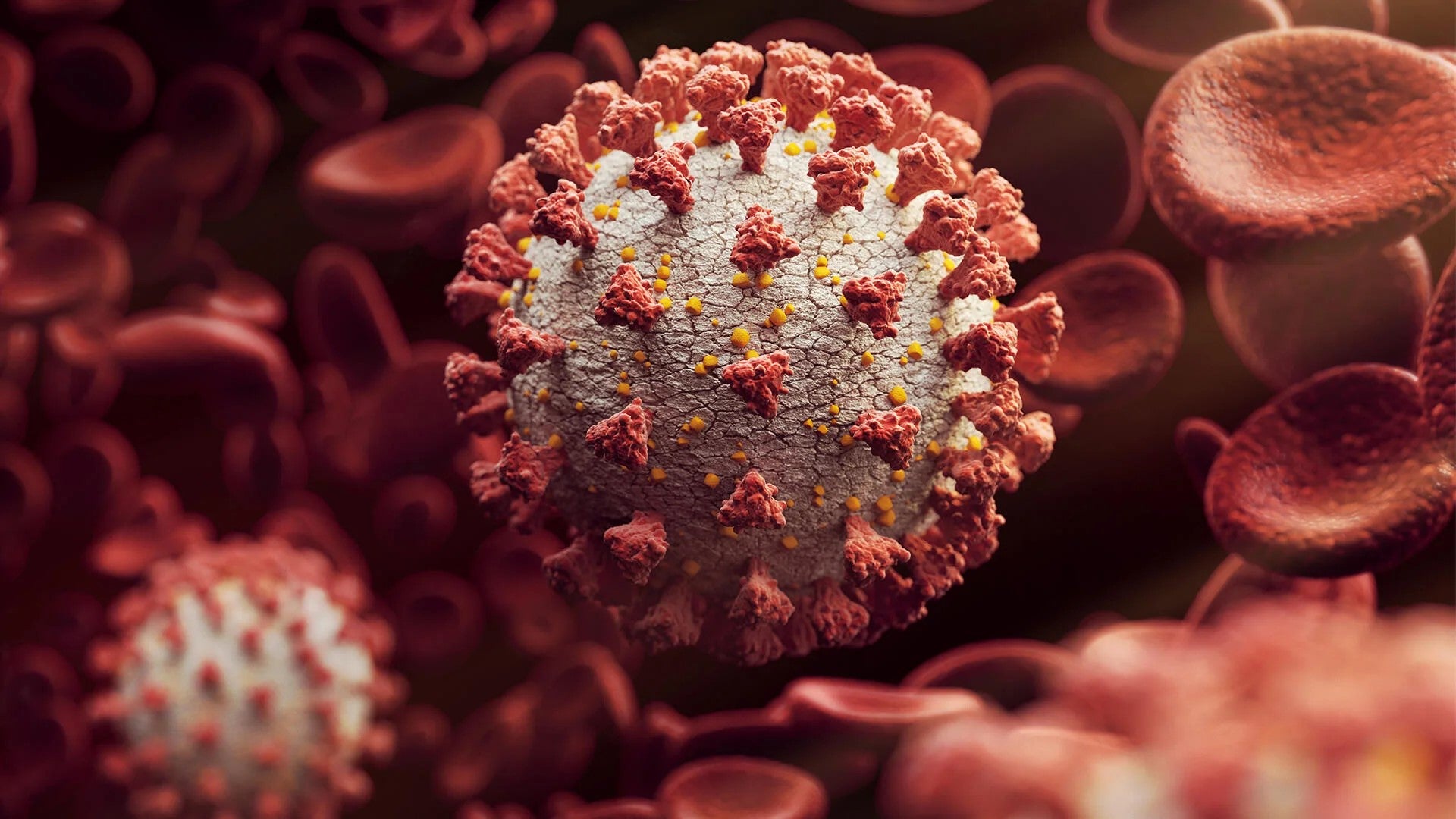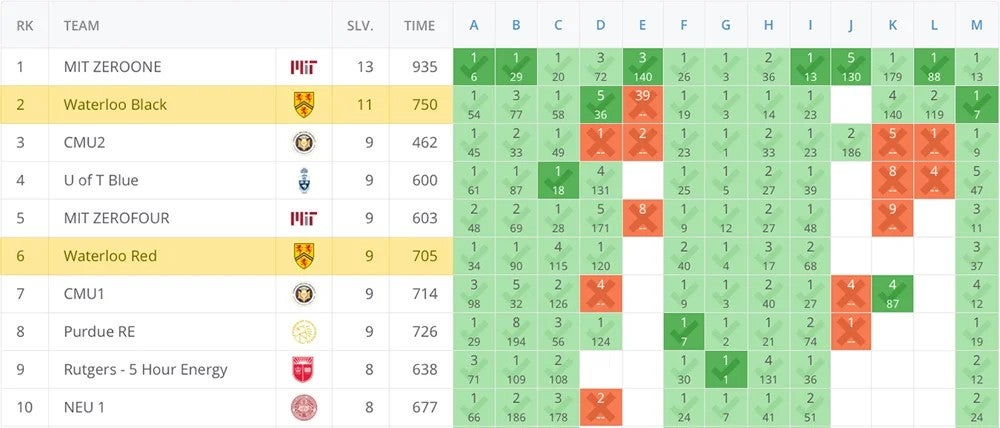Editor:
Brandon Sweet
University Communications
bulletin@uwaterloo.ca
ITC Project honoured with 2021 Governor General's Innovation Award

By Wendy Philpott. This is an excerpt of an article originally published on Waterloo News.
The International Tobacco Control (ITC) Project at the University of Waterloo has been awarded one of six Governor General’s Innovation Awards for 2021. Celebrating excellence in innovation that makes a positive impact on quality of life in Canada, the honour is awarded jointly to the interdisciplinary ITC team including Faculty of Arts’ Geoffrey Fong (Psychology), Faculty of Mathematics’ Mary Thompson (Statistics and Actuarial Science), and Faculty of Health’s David Hammond (School of Public Health and Health Systems).
“With the persistent leadership of Dr. Geoffrey Fong, the ITC Project, centered at the University of Waterloo, is globally renowned for its innovative research supporting and defending effective tobacco control policies such as graphic health warnings, smoke free laws, advertising bans, and tobacco taxes,” states the Governor General’s Innovation Award citation.
“This pioneering research, across 29 countries covering over half of the world’s population, has led Canada and many other countries to strengthen their tobacco control efforts, improving the health of millions of people worldwide,” the citation continued.
Fong, a professor of social psychology, founded the ITC Project in 2002, and has been its Chief Principal Investigator heading the ITC team of more than 150 researchers across its 29 countries. Both Thompson and Hammond have been key project collaborators since then.
“From the very beginning, the ITC Project has been a truly inter-faculty research program involving three faculties at UWaterloo — Arts, Math and Health, with the three of us representing each of the three faculties,” says Fong. “This is a truly special honour in that we are receiving the Governor General’s Innovation Award with five other recipients whose accomplishments are so extraordinary and so diverse—a diversity that is reflective of Canadian society itself.”
Evaluating key policies of the WHO Framework Convention on Tobacco Control (FCTC), the ITC Project has conducted over 170 surveys collecting nearly 400,000 completed surveys, to measure the impact of tobacco control policies of the FCTC including more recent policies such as plain packaging and bans on additives and flavourings in cigarettes. Over the past 20 years, Fong and his colleagues have built the evidence base to promote stronger actions to tackle tobacco smoking — which kills 47,000 people a year in Canada and more than 8 million people a year globally.
Fong recalls the early days of the ITC Project. “Although I had very little background in tobacco research when the ITC concept was developing in my mind, thanks to extraordinary support from colleagues at Waterloo — like Roy Cameron, now a Waterloo distinguished professor emeritus — and top tobacco researchers in the US, U, and Australia, who put their faith in Mary, Dave and me in creating the ITC Project.”
Fong also reflected on why the ITC Project has been recognized for its innovation. “Before ITC, there were almost no international studies of tobacco use, and the few that existed were designed to assess whether smoking was going up or down over time. ITC was the first international tobacco program to be created by research institutions rather than governments and ITC was designed to address not just whether smoking was changing, but how and why —especially whether tobacco control policies were responsible for those changes.”
Originally joining the ITC Project as a graduate student, Hammond recalls how he was “sent around the world learning how to conduct surveys on the back of mopeds in Taiwan and with school kids in China. Today I lead the ITC research project that examines youth and young people, including how vaping and newer tobacco products are influencing smoking initiation.”
About the Governor General’s award, Hammond said, “It’s a testament to the importance of basic public health research and of international collaborations to understand how global risk factors for chronic disease can be addressed.”
Thompson, a distinguished professor emerita, is currently the ITC Project’s director of data management. From the start of the ITC Project, she has developed or played a leading role in the sampling designs for the ITC surveys in all 29 countries and guided the analyses of the complex data sets that result. “It’s certainly a great honour to be part of this team,” she says, “and being recognized for work that seeks to make a difference in global public health.”
Read the rest of the article on Waterloo News.
W Store hosts online staff and faculty appreciation sale this week

A message from W Store.
As we gear up for the spring term, the W Store team wants to show their appreciation for the hard-working University of Waterloo staff and faculty who continue to support the campus community through an incredibly challenging year.
From May 4 to 7, UWaterloo staff and faculty are invited to enjoy up to 30 per cent off select campus favourites online at http://bit.ly/WStoreSale.
Discounts have already been applied. No coupon code required. Any additional questions may be directed to the W Store team at wstore@uwaterloo.ca.
Adding speed to COVID-testing

This article was originally published on Waterloo News.
Researchers at the University of Waterloo are developing a new COVID-19 test that can be administered at home using saliva, aiming to deliver a positive or negative result in less than 20 minutes.
It’s a possible solution to the current delays in receiving test results and a much more pleasant option for those requiring frequent tests, researchers said. They hope the tests will become available over the counter at pharmacies across Canada.
The use of paper devices coated with nanoparticles for COVID detection is a game changer.
Right now, COVID tests can take two to three business days to come back, and we know that’s too long,” said Sushanta Mitra, Professor of Mechanical & Mechatronics Engineering and co-lead researcher on the project. “This test will provide an immediate positive or negative so that folks who are infected can isolate immediately.”
The detection platform is made of paper, which is extremely inexpensive and would require minimal reagents—thereby making it a mass-deployable, cost-effective and rapid diagnostic solution, Mitra said.
The Waterloo Institute for Nanotechnology at the University of Waterloo is working in collaboration with ChitoLytic Inc. on the research. The company has developed the chitosan nanoparticles, an important substrate for the microfluidic sensor that is needed to make the test effective for use in saliva testing.
The project is being co-led by Professor Juewen Liu of Waterloo’s chemistry department.
“We are working on the test to detect two specific targets of the virus. This will bring the test to lab-like accuracy, making it more reliable than current rapid tests,” Liu said. “Another unique aspect is that it uses saliva, which is more easily accessible than the current practice of using nasal or throat swabs.”
The team will work towards making these rapid testing kits available to the public as soon as possible, targeting first-stage testing within 6 months.
“This test is literally a lab-in-your-hand that can be used to perform testing anywhere with speed and accuracy,” said Michel Lockhart, chief executive of ChitoLytic. “Because of this, and that the tests are affordable, it can allow frequent test taking, which experts say is a key in helping monitor and keep down infections.”
ChitoLytic is a supplier and manufacturer of chitosan, a natural biopolymer. They provide pure high-quality medical chitosan, and industrial grades for R&D and commercial projects, and chitosan-based technologies for various applications.
This research is made possible by funding from ChitoLytic and Mitacs.
Waterloo Black takes second place at 2021 ICPC North America Division Championships
This article was originally published on the School of Computer Science's website.
Two teams from the University of Waterloo, each with a triad of exceptional programmers, competed virtually on April 22, 2021 at the East Division of the 2021 International Collegiate Programming Contest’s North America Division Championships.
Waterloo Black, consisting of Ildar Gainullin (1B computer science), Jason Yuen (4B computer science) and Wesley Leung (4A software engineering), placed second, solving 11 out of 13 problems. Waterloo Red, consisting of William Li, George Chen and Andrew Qi Tang — all 1B computer science students — finished sixth, solving 9 out of 13 problems.
2021 ICPC North America Division Championships, East Division • Top 10 teams

Dark green indicates the team was first to solve the problem, light green indicates the team solved the problem, and orange indicates that the problem was attempted.
Waterloo teams were coached by Cheriton School of Computer Science Professors Ondřej Lhoták and Troy Vasiga, and sponsored by Jane Street, an international firm that trades a wide range of financial products.
“Each year our students face strong competition from teams fielded by universities across the eastern region of North America,” said Professor Lhoták. “We’re very impressed by Waterloo Black’s solid second-place win, and on Waterloo Red’s impressive sixth-place showing, especially as the team consists entirely of first-year computer science students.”
“Ondřej and I are tremendously proud and impressed by how well our teams ranked in this year’s gruelling competition against 41 teams in total,” said Professor Vasiga.
“We’re now prepping Waterloo Black for the North America Championships. Given their strong showing last Thursday and earlier at the East Central North America International Collegiate Programming Contest, we’re hopeful they will place highly at the North America Championship held in early August 2021 and go on to compete in the ICPC World Finals in 2022.”
Dark green indicates the team was first to solve the problem, light green indicates the team solved the problem, and orange indicates that the problem was attempted.
Read the full article on the School of Computer Science website.
Link of the day
When and Where to get support
Students can visit the Student Success Office online for supports including academic development, international student resources, leadership development, exchange and study abroad, and opportunities to get involved.
Instructors can visit the Keep Learning website to get support on adapting their teaching and learning plans for an online environment.
Course templates are available within your course in LEARN to help you build and edit your content and assignment pages quickly.
The following workshops, webinars, and events are offered by the KL team (CTE, CEL, ITMS, LIB):
- Independent Remote Course Design Essentials, self-directed, continuous self-enrollment course in LEARN.
- Remote Teaching Support Drop-In, weeks of April 26th and May 3rd
- Getting Ready to Facilitate Online Courses: TA Training, beginning Monday, May 3
- LEARN for TAs (CTE6550), Wednesday, May 5, 10:00 a.m. to 11:30 a.m.
- LEARN for TAs (CTE6550), Tuesday, May 18, 1:30 p.m. to 3:00 p.m.
Employees can access resources to help them work remotely, including managing University records and privacy of personal information. Here are some tips for staying healthy while working from home.
Stay informed about COVID cases on campus by consulting the COVID case tracker.
The Writing and Communication Centre has virtual services and programs to help undergrads, grad students, postdocs and faculty members with academic writing.
- Meet with writing advisors in one-to-one appointments to brainstorm, draft, revise, and polish. No time for an appointment? Try email tutoring for undergrads.
- Beat isolation and make writing progress at weekly Virtual Writing Cafés for grad students and faculty or PJ-Friendly Writing Groups for Undergrads.
- Take an online workshop or apply to our popular Dissertation Boot Camp program.
- Faculty can request custom in-class workshops for their courses, or the WCC can facilitate any existing workshops for student groups.
Co-op students can get help finding a job and find supports to successfully work remotely, develop new skills, access wellness and career information, and contact a co-op or career advisor.
The Centre for Career Action assists undergraduates, graduate students, postdocs, staff, faculty, and alumni through navigating career services that are right for them. You can attend a one-on-one appointment or same day drop-in session at the CCA for assistance with cover letter writing, career planning and much more. You can also book an appointment online or visit our Live Chat to connect with our Client Support Team. The CCA is here to help you.
If you feel overwhelmed or anxious and need to talk to somebody, please contact the University’s Campus Wellness services, either Health Services or Counselling Services. You can also contact the University's Centre for Mental Health Research and Treatment. Good2Talk is a post-secondary student helpline available to all students.
The Library has published a resource guide on how to avoid information overload.
The Faculty Association of the University of Waterloo (FAUW) continues to advocate for its members. Check out the FAUW blog for more information.
The University of Waterloo Staff Association (UWSA) continues to advocate for its members. Check out the UWSA blog for more information.
The Indigenous Initiatives Office is a central hub that provides guidance, support, and resources to all Indigenous and non-Indigenous campus community members and oversees the university Indigenization strategy.
The Waterloo Indigenous Student Centre, based at St. Paul’s University College, provides support and resources for Indigenous students, and educational outreach programs for the broader community, including lectures, and events.
WUSA supports for students:
Peer support - MATES, Glow Centre, RAISE, Women’s Centre - Visit https://wusa.ca/peersupport to book an appointment
Bike Centre – Will be reopening soon.
Campus Response Team, ICSN, Off Campus Community and Co-op Connection all available online. Check https://wusa.ca for more details.
Food Support Service food hampers are currently available from the Turnkey Desk on weekdays from 7:30 a.m. to 7:00 p.m. in the Student Life Centre. If you have any questions please email us at foodsupport@wusa.ca.
Centre for Academic Policy Support - CAPS is here to assist Waterloo undergraduates throughout their experience in navigating academic policy in the instances of filing petitions, grievances and appeals. Please contact them at caps@wusa.ca. More information is available.
WUSA Commissioners who can help in a variety of areas that students may be experiencing during this time:
- Equity – equity@wusa.ca
- Co-op and Experiential Affairs – coop.affairs@wusa.ca
WUSA Student Legal Protection Program- Seeking legal counsel can be intimidating, especially if it’s your first time facing a legal issue. The legal assistance helpline provides quick access to legal advice in any area of law, including criminal. Just call 1-833-202-4571.
Empower Me is a confidential mental health and wellness service that connects students with qualified counsellors 24/7. They can be reached at 1-833-628-5589.
When and Where (but mostly when)
Healthy Warriors at Home (Online Fitness)
Drop-in to Warrior Virtual Study Halls on Wednesdays from 5:30 p.m. to 7:00 p.m. Come together in this virtual space to set goals and work independently or in groups each week.
Renison English Language Institute continues to offer virtual events and workshops to help students practice their English language skills.
Warriors vs. Laurier Blood Donation Battle. Join your fellow Warriors, donate blood and help us win the Blood Battle against Laurier for a second year in a row. Set up a profile or add the PFL code: UNIV960995 to your account if you have a blood.ca account already. Questions? Contact WarriorsInfo@uwaterloo.ca.
Dissertation Boot Camp, Friday, May 7.
Return to Campus Virtual Town Hall, Tuesday, May 11, 1:30 p.m.
Breaking Free From Low Mood, Tuesday, May 11, 2:30 p.m.
36th Annual Meeting of the Canadian Biomaterials Society, Thursday, May 13 to Saturday, May 15. Hosted by the University of Waterloo.
Indigenous-Mennonite Encounters: Conference Preview, Thursday, May 13, 10:00 a.m.
NEW -Lectures in Catholic Experience presents The Black Church in Canada featuring Carol Duncan, PhD, professor, Department of Religion and Culture, Wilfrid Laurier University, Friday, May 14, 7:30 p.m., online.